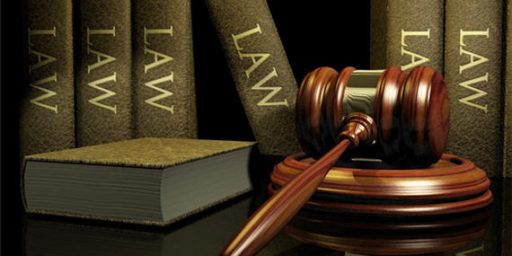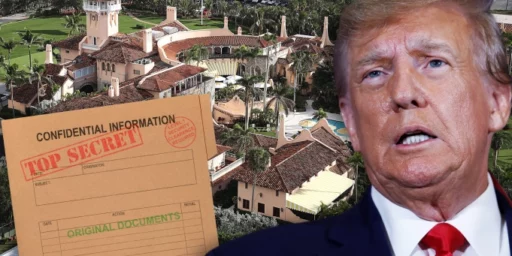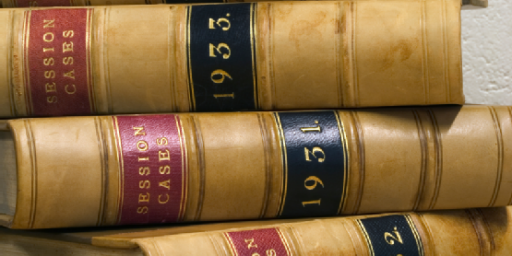Public Information Too Public
The increasing ease of finding public — but previously hard-to-find — information on the Internet has privacy advocates concerned.
Last month, PeopleFinders, a 20-year-old company based in Sacramento, introduced CriminalSearches.com, a free service to satisfy those common impulses. The site, which is supported by ads, lets people search by name through criminal archives of all 50 states and 3,500 counties in the United States. In the process, it just might upset a sensitive social balance once preserved by the difficulty of obtaining public documents like criminal records.
Academics have a term for the old inaccessibility of records like those for criminal convictions: “practical obscurity.” Once upon a time, people in search of this data had to hire private investigators to navigate byzantine courthouses and rudimentary filing or computer systems, and to deal with often grim-faced legal clerks. In a way, the obstacles to getting criminal information maintained a valuable, ignorance-fueled civil peace. Convicts could start fresh after serving their time without strangers knowing their pasts, and there was little risk that unsophisticated researchers could confuse people with identical names.
Well, not anymore. The information on CriminalSearches.com is available to all comers. “Do you really know who people are?” the site blares in large script at the top of the page.
Databases of criminal convictions first moved online several years ago. But users of pay sites like Intelius.com and PeopleScanner.com had to enter their credit card numbers for access — often enough of an obstacle to discourage casual or improper inquiries.
According to Bryce Lane, president of PeopleFinders, the new site draws data directly from local courthouses and offers records of arrests and convictions in connection with everything from murder to minor infractions like blowing past a stop sign — at least for jurisdictions that include traffic violations in their criminal data. It also lets users view a map showing addresses and names of all those arrested or convicted of a crime in a specific neighborhood, and to place alerts that prompt e-mail when someone in their life gets busted or someone with a record moves in nearby.
Beyond making snooping more convenient, this sort of arrangement removes important safeguards.
In the past, Congress carefully considered how the public should use criminal records. Amendments to the Fair Credit Reporting Act in 1997 required that employers who hire investigators to obtain criminal records from consumer reporting agencies advise prospective employees of the search in advance, and disregard some types of convictions that are older than seven years.
“I don’t think Congress stuck that in there randomly,” says Daniel J. Solove, a professor of law at the George Washington University Law School and author of “Understanding Privacy.” “Congress made the judgment that after a certain period of time, people shouldn’t be harmed by having convictions stick with them forever and ever.”
BUT now, of course, none of the old restrictions apply. The information is available from a variety of sources, and now free. Jurors can and almost certainly will be tempted to look up criminal pasts of defendants in their cases. And employers can conduct searches themselves without hiring investigators. Mr. Lane of PeopleFinders says that employers cannot legally use the database in making hiring decisions — but there is nothing to stop them.
Indeed, once the existence of such databases becomes widely known, there might even be a de facto obligation to screen employees that way even if it’s technically illegal. If a company hires someone with a history of violent crimes who harms somebody at the workplace, the ensuing lawsuit will surely bring into evidence the fact that the human resource department should have done its due dilligence and spent five minutes doing a free background check before making a hiring decision. One suspects that jurors will not at all be sympathetic to the “well, technically, it would be illegal for us to actually do that.”
My wife and I had a related conversation last night. She was looking up some pricing information on houses in our area and noticed that quite a few of the records she found had “Information Withheld By Request” in lieu of information on the ownership. Both of our immediate reactions were the same: How can they withhold public information? Upon reflection, though, we both came to the same conclusion: Why should that information be public to begin with?
I understand why criminal records, especially those of felony convictions, are publicly available. I understand, too, why things like real estate deed recording done by public agencies. I don’t, however, get why most “public” information is out there simply for the curious.
In a related matter, Solove wonders, “Should People’s Political Donations Be Public?“ While I tend to think they should, since fast and full disclosure would be far preferable to every other conceivable type of campaign finance reform, Solove makes a strong argument that such disclosure violates the 1st Amendment. Beyond that, it goes against the principle of the secret ballot.






Absent legitimate national security concerns, I am generally very leery of attempts to withhold information. As an example, Solove’s data he would keep hidden helps to reveal the bias of the MSM and academia. Likewise, actions have consequences. As an employer, I would likely laugh off a 20 year old conviction for public indecency after hearing the story of skinny dipping in the university fountain. But I wouldn’t laugh off the conviction for exposing himself to children 3 years ago. Others might make a different call. But saying I shouldn’t have the information is making the call for me.
The first amendment gives you the right to free speech, it doesn’t give you the right to keep your speech private.
There has long been a lot of information available by calling or taking a trip to the city or county building. It is being put on the internet as a convenience. And now its very convenient.
A lot of information is public not because people have a genuine need to check on each other, but a need to check on the government. Buch of paranoid tea-spillers.
On those political contributions….. for the same reasons teachers have tenure and union votes should be secret, management has a way of punishing disloyalty. Sorry, but contributions should not be published info. How else to police politicians…?????
Um, isn’t punishing people for not giving money to certain people already illegal?
Uh, I put my name in there, minus my middle initial, and got a hit…with a different middle initial, and birthdate. Likewise with my brother’s name minus the middle initial. Try it yourself, and tell me that there’s not a momentary frisson if your name pops up.